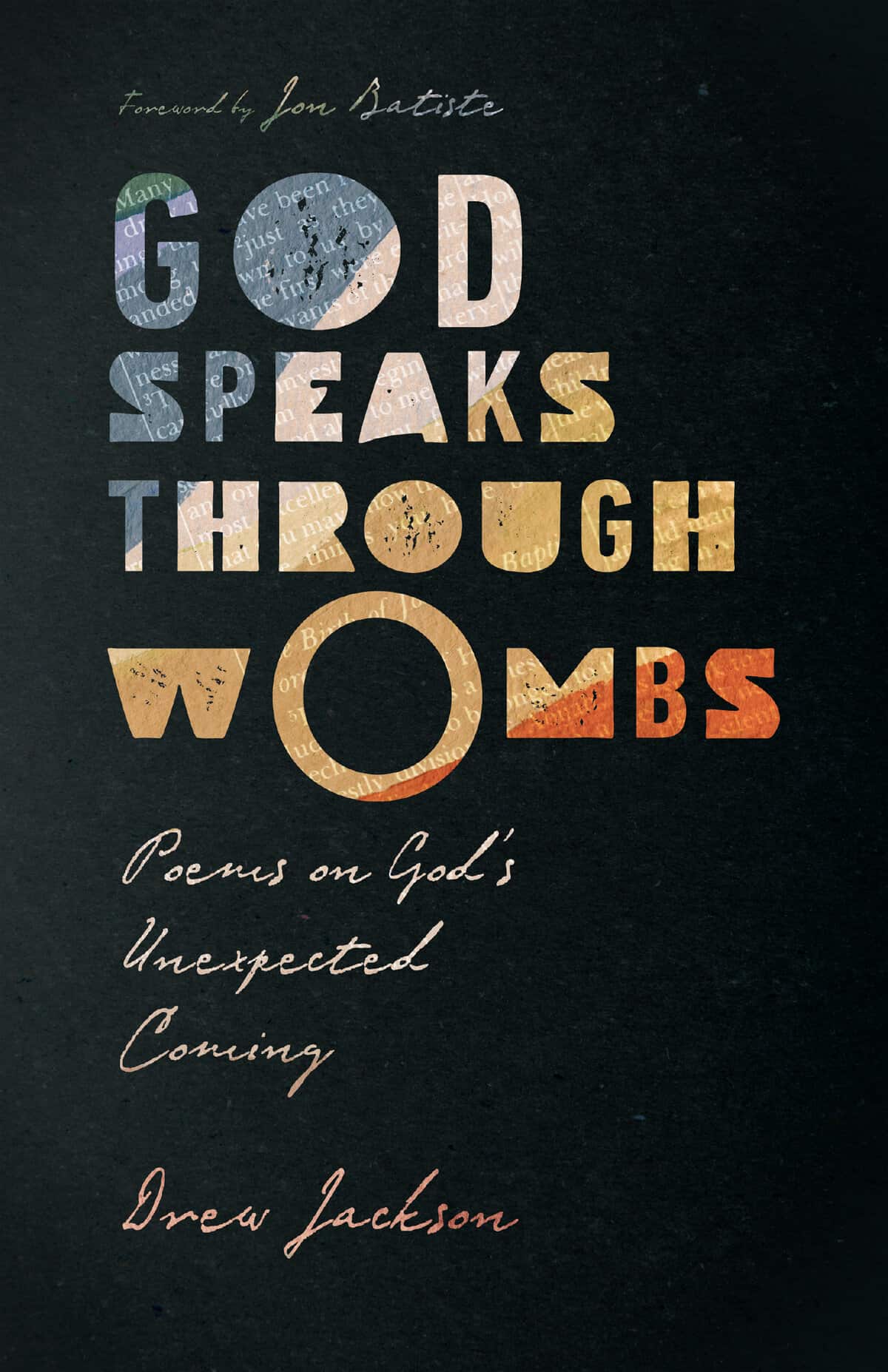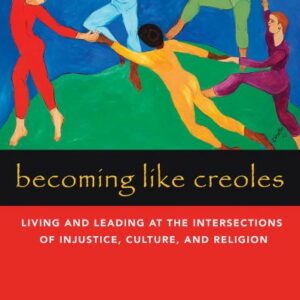 We spoke with pastor and poet Drew Jackson about his latest work, God Speaks Through Wombs, a collection of poems that traverses the first eight chapters of the Gospel of Luke. Drew is the founding pastor of Hope East Village in New York City and writes poetry at the intersection of justice, peace, and contemplation, with a passion to contribute toward a more just and whole world. Listen to Drew read one of his poems.
We spoke with pastor and poet Drew Jackson about his latest work, God Speaks Through Wombs, a collection of poems that traverses the first eight chapters of the Gospel of Luke. Drew is the founding pastor of Hope East Village in New York City and writes poetry at the intersection of justice, peace, and contemplation, with a passion to contribute toward a more just and whole world. Listen to Drew read one of his poems.
Why did you title this “God Speaks Through Wombs?”
The title comes from one of the poems in the book, which is a reflection on the story of Elizabeth hearing the news that she will be giving birth to John the Baptist. Elizabeth was a person who, because of her barrenness and her old age, would have been marginalized in that society, but God chooses to break into history, to speak and to act, through her. As I say in the poem:
In the days of empires
and puppet regimes
God speaks.Through wombs,
wrested and discarded
because they were unviable.
This is what they do:the Romes
the Babylons
the USAs
the men—
toss to the side, as detritus,
what they’ve deemed unfit
to be utilized.But God speaks through wombs,
birthing prophetic utterances.
This is a theme that Luke carries throughout his Gospel—God’s choice to speak, move, and act in history through those that society has marginalized and oppressed.
Why did you choose Luke’s Gospel as the launching point for your new book of poems?
Luke is intent on centering the voices of the marginalized in his telling of the gospel story. In particular, he brings to the fore the voices of the poor and women in how he tells this story. This was something that I wanted to shape this poetry collection, because when the story of Scripture is often told, it’s told from the perspective of those at the center of power.
But as I often say, Rome did not write the Scriptures. These words were written by and, first and foremost, for those who have experienced life from history’s underside. It is crucial for us to be hearing those voices, both in Scripture and in our present world, as we seek to make sense of the gospel in our time and place.
Talk about the power of poetry and art to bring biblical truths to life, especially in areas of justice and advocacy.
Poetry has always been a powerful prophetic device. It’s no coincidence that all of the Hebrew prophets were poets and artists. There’s something about poetry that is able to communicate prophetic words truthfully, while at the same time disarming readers and listeners. I can talk about something like police brutality and mass incarceration, which I do in my book, but it sounds very different in poetry than it does if I were to just list statistics. I believe both are necessary.
What I find is that poetry has a unique way of holding together truth, beauty, and goodness in one place. I love how Emily Dickinson puts it when she says, “Tell all the truth, but tell it slant.”
We often don’t talk about this, but the parables of Jesus use a lot of poetic devices. One of the things poets love to do is to invite readers into a journey of discovery by layering meaning into the text. There is often no single interpretation to poetry. When Jesus says, “Whoever has ears to hear, let them hear,” at the end of his parables, that is something every poem essentially closes with.
As you were writing these poems and reflecting on God’s work in history up through today, what new lesson or important reminder did God place on your heart?
In the first poem in the book, I close with this line: have confidence in what you hear from them. I was reminded of the importance of listening to and believing the voices of those who are often silenced in our world. There’s a reason God has so often chosen to speak through these voices throughout history, and there’s also a reason why those in power have worked so hard to keep these voices silent.
To be relevant today, we must always be finding fresh ways to read and apply God’s Word. What has been a key for you in this area?
One of the things that I say in my introduction is that I wrote those poems not only out of my interest in biblical and theological discourse, but unapologetically as a Black man. What I mean is that I don’t and won’t make any apology for bringing my blackness to my reading of the text.
We all have lenses when we read Scripture. To have a lens is not a bad thing, and the goal is not to get rid of our lenses; that’s impossible. The goal is to be aware of the lenses that we are viewing and interpreting things through. I believe that when we can do that, and we bring those things together to the table of interpretation, it can provide us with a fuller, richer, deeper sense of the text. It was important for me to bring my full self into writing these poems and engaging with the biblical text—my Blackness, my imagination, and my curiosity included.
Excerpt from God Speaks Through Wombs by Drew Jackson
Rise Up, My People!
Luke 5:24-26Rise up!
Rise up, my people!
It’s time to shake the dust.
It’s time to claim your dignity.
Enough has been
enough!
Rise up!
Rise up, my people!
And live in shame no more.
Go strut into the future light.
There’s greatness that’s
in store.
Rise up!
Rise up, my people!
And lift your voices high.
Let’s sing the song that freedom brings.
Our sound will
never die.
Rise up!
Rise up, my people!
Go on and talk that talk.
Put swagger in your step today.
It’s time to rise
and walk!
From God Speaks Through Wombs by Drew Jackson. Copyright 2021 by Drew Edward Jackson. Published by InterVarsity Press, Downers Grove, IL.


